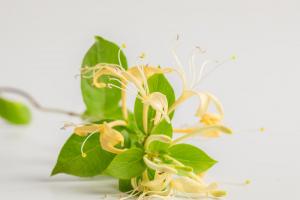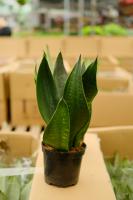Can Mildew from Apple Trees Affect Other Plants?
Mildew is a common plant disease that is caused by several types of fungi. It is a nuisance that can cause unsightly damages to plants, and it is a problem that is of great concern to gardeners and farmers alike. Apple trees are one of the plants that are easily affected by mildew, and this brings up the question: can mildew from apple trees affect other plants?
The Answer
The straightforward answer is yes. Mildew from apple trees can indeed affect other plants in the garden or the farm. This is because mildew spores are airborne and are easily spread from one plant to another. In addition, different types of mildew can affect different plants. Therefore, it is essential to tackle mildew as soon as it appears on any plant to prevent its spread.
How Mildew Spreads
Mildew can spread from one plant to another in various ways. One of the most common ways is by airborne spores. When an infected plant releases its spores, the wind can carry them to other plants in the area, and this can cause new infections. Mildew can also spread through water droplets. For example, if you water an infected plant, the water droplets can accidentally splash onto another plant, causing a new infection. Finally, mildew can spread through gardening tools such as pruning shears or lawnmowers if they are used on an infected plant and not cleaned properly before use on another plant.
Preventing Mildew on Other Plants
The best way to prevent mildew from apple trees or any other plant from affecting others is by taking steps to prevent the spread of spores. The first step is to monitor all plants in the garden or farm regularly. Inspect every plant thoroughly for signs of mildew and other diseases. If you notice any signs of mildew, such as white or gray powdery patches on the plant's leaves or stems, take immediate action to prevent its spread.
If mildew is present, remove all infected leaves, flowers, fruits, and stems as soon as possible. This will reduce the number of spores that can spread to other plants. You can also use fungicides to control mildew, but it is best to choose a product that is safe for other plants in the garden or farm. You can ask a local nursery or agricultural extension office for recommendations on the best fungicides to use.
Another effective way to prevent mildew from spreading is by maintaining proper plant care. Mildew is more likely to occur in plants that are stressed or undernourished. Therefore, provide your plants with proper watering, fertilizer, and pruning. In addition, make sure to clean any gardening tools that you use to prevent spreading mildew or other diseases. Disinfect them with a 10% bleach solution or rubbing alcohol before use on another plant.
In Conclusion
Mildew from apple trees can indeed affect other plants in the garden or farm, and it is essential to take steps to prevent its spread. Regular plant monitoring, prompt removal of infected plant parts, and proper plant care are all effective ways to control the spread of mildew to other plants. Remember to always take precautions when pruning or working with infected plants, and do not hesitate to seek professional help if the mildew problem persists.

 how many times do yo...
how many times do yo... how many planted tre...
how many planted tre... how many pine trees ...
how many pine trees ... how many pecan trees...
how many pecan trees... how many plants comp...
how many plants comp... how many plants can ...
how many plants can ... how many plants and ...
how many plants and ... how many pepper plan...
how many pepper plan...
































